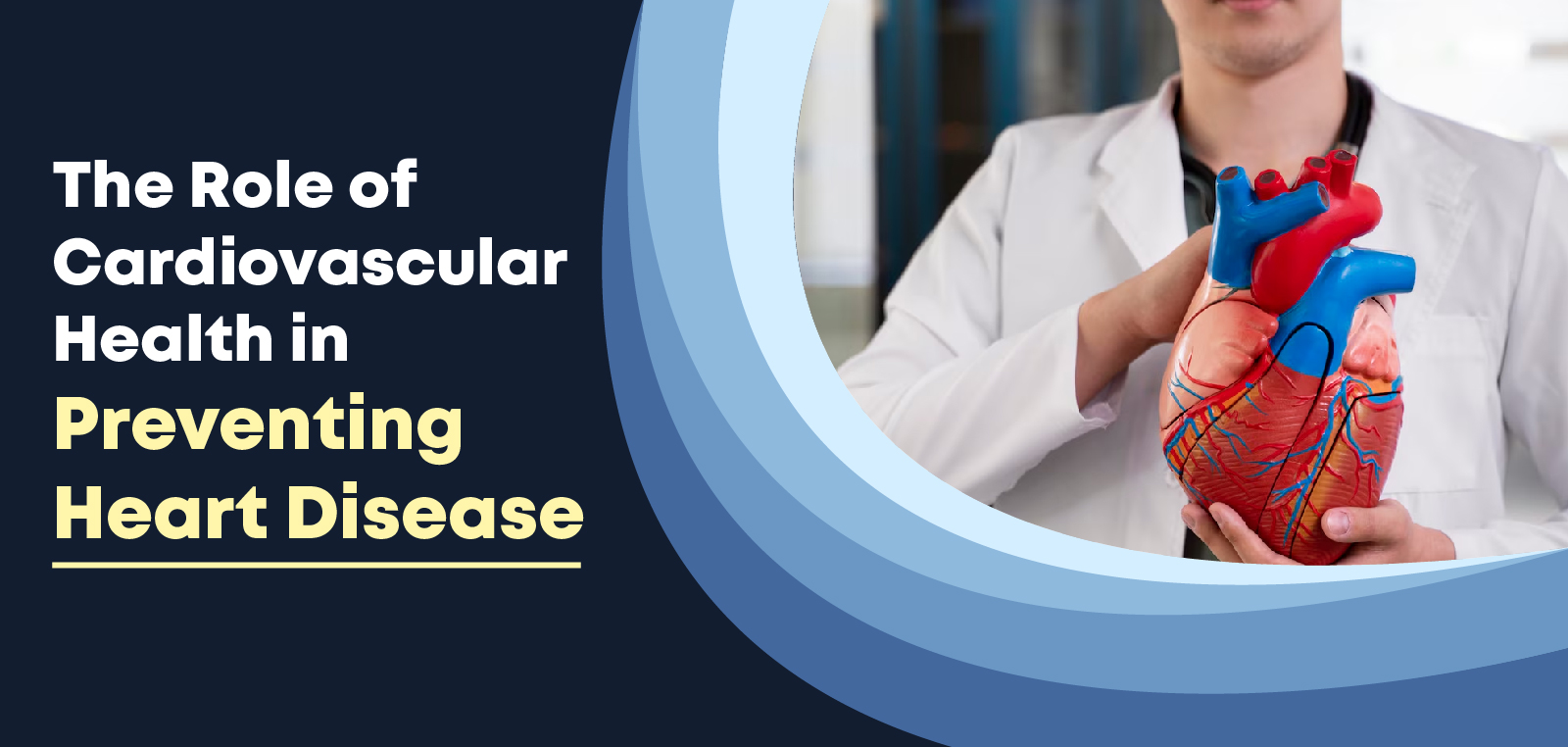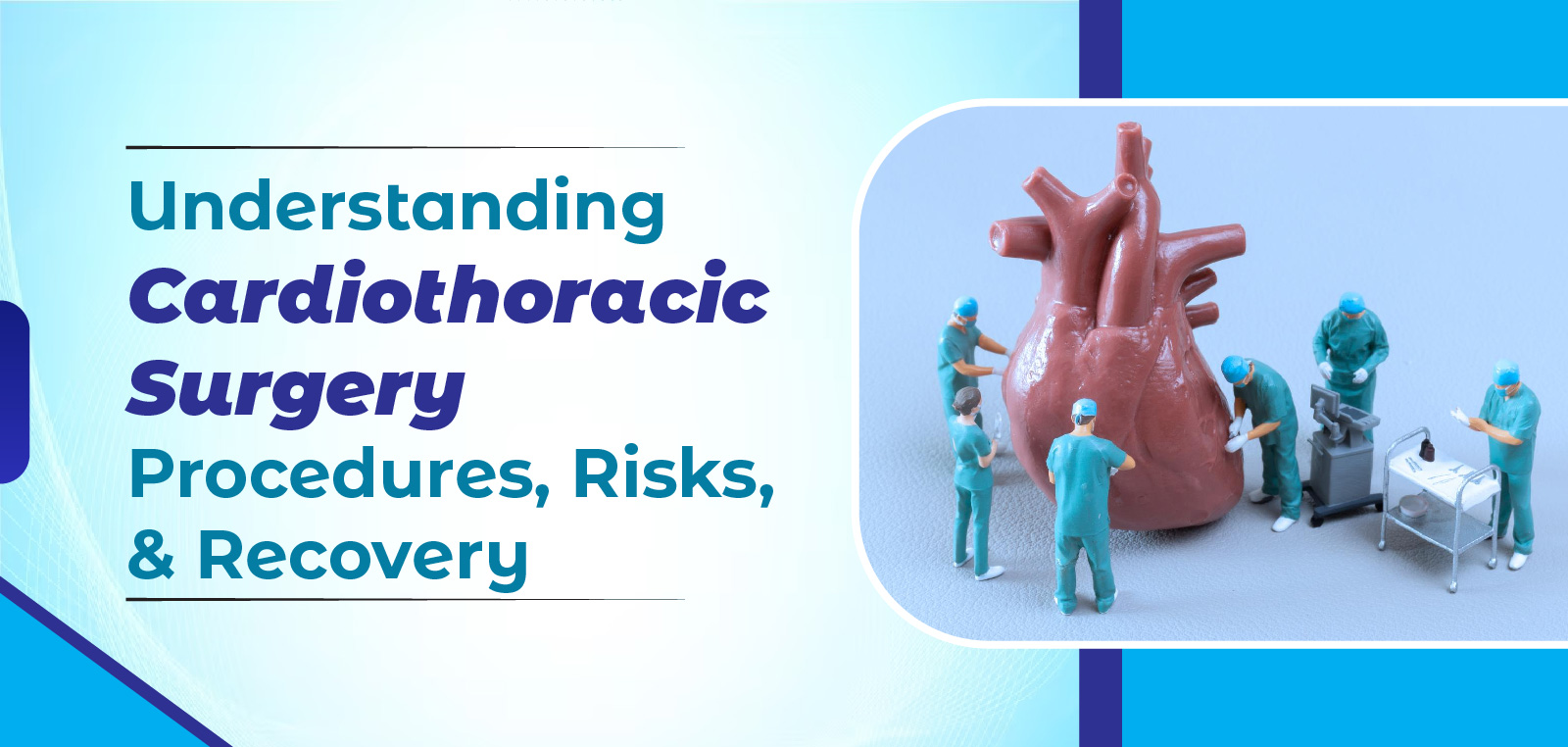- Mon - Sat : 5:30 - 8:30
- Sunday - CLOSED
- +91 99304 53556
- drshridhargpadagatti@gmail.com
- Khar(W), Mumbai
- 001, Himath Ghar
- admindrshridhar
- 0 Comments
The Role of Cardiovascular Health in Preventing Heart Disease
The Role of Cardiovascular Health in Preventing Heart Disease Heart disease is the leading cause of death worldwide, but it is largely preventable. At the core of heart disease prevention is cardiovascular health, which encompasses the well-being of the heart and blood vessels. Understanding the importance of cardiovascular health, the factors that influence it, and ways to maintain it can empower individuals to lead healthier, longer lives. At Active Heart Clinic, under the expertise of Dr. Shridhar G. Padagatti, patients receive comprehensive care and guidance for managing and improving cardiovascular health. This blog explores how cardiovascular health impacts heart disease prevention and provides actionable tips to keep your heart strong. What is Cardiovascular Health? Cardiovascular health refers to the optimal functioning of the heart and blood vessels. A healthy cardiovascular system efficiently pumps blood, delivering oxygen and nutrients to the body’s tissues while removing waste products. Good cardiovascular health lowers the risk of developing conditions such as: Coronary artery disease (CAD)– Hypertension (high blood pressure) Stroke– Heart failure Several measurable factors define cardiovascular health, including: Blood Pressure: Maintaining normal blood pressure (<120/80 mmHg) reduces strain on the heart and arteries.Cholesterol Levels: Healthy cholesterol levels prevent plaque buildup in arteries.Blood Sugar Levels: Controlled blood glucose minimizes damage to blood vessels.Body Weight: A healthy weight reduces the risk of heart disease.Physical Activity: Regular exercise strengthens the heart and improves circulation.Diet: Nutrient-rich foods support overall cardiovascular health. How Cardiovascular Health Prevents Heart Disease Prevention of AtherosclerosisAtherosclerosis, or the hardening of arteries due to plaque buildup, is a major cause of heart disease. Healthy cholesterol levels and a balanced diet prevent plaque formation, ensuring smooth blood flow. Reduction in Hypertension RiskHigh blood pressure strains the heart and damages arteries, increasing the risk of heart attacks and strokes. Cardiovascular fitness achieved through exercise and weight management keeps blood pressure in check. Better Blood CirculationA strong cardiovascular system ensures efficient blood circulation, reducing the risk of ischemic conditions like heart attacks and angina. Improved Heart Muscle FunctionRegular physical activity strengthens the heart muscle, improving its efficiency and reducing the likelihood of heart failure. Lower Inflammation LevelsChronic inflammation can damage blood vessels and contribute to heart disease. A heart-healthy lifestyle minimizes inflammation, reducing overall risk. Risk Factors Affecting Cardiovascular HealthUnhealthy DietDiets high in saturated fats, trans fats, sugar, and salt can lead to obesity, hypertension, and high cholesterol. Sedentary LifestylePhysical inactivity contributes to obesity, weakens the heart muscle, and increases the risk of metabolic disorders. Smoking and Excessive AlcoholSmoking damages blood vessels, while excessive alcohol raises blood pressure and weakens the heart. Stress and Sleep DeprivationChronic stress and inadequate sleep disrupt hormonal balance, increasing the risk of hypertension and heart disease. Genetics and AgeA family history of heart disease or advanced age can increase risk, but a healthy lifestyle can mitigate these factors. Tips for Maintaining Cardiovascular Health Adopt a Heart-Healthy Diet Emphasize fruits, vegetables, whole grains, lean proteins, and healthy fats (like omega-3 fatty acids).Reduce sodium and processed sugar intake. Stay Physically Active Aim for at least 150 minutes of moderate aerobic activity weekly, such as brisk walking, swimming, or cycling.Incorporate strength training exercises twice a week. Monitor Key Health Metrics Regularly check your blood pressure, cholesterol, and blood sugar levels.Seek medical advice for abnormal readings. Quit Smoking Smoking cessation improves blood circulation and reduces the risk of heart disease within weeks. Manage Stress Practice relaxation techniques like yoga, meditation, or deep breathing exercises.Stay connected with friends and family for emotional support. Sleep Well Aim for 7-9 hours of quality sleep each night to allow your body to recover and repair. Limit Alcohol Consumption Keep alcohol intake moderate, with no more than one drink per day for women and two for men. The Role of Regular Check-UpsPreventive healthcare plays a crucial role in cardiovascular health. Regular screenings help detect issues like hypertension, high cholesterol, or prediabetes before they lead to severe complications. At Active Heart Clinic, Dr. Shridhar G. Padagatti emphasizes early intervention and personalized treatment plans to address individual risk factors. Address – 001, Himath Ghar. Plot No. 539-A Opp Khatri Manzil 13th Road Khar (W) Email: drshridhargpadagatti@gmail.com Contact No. +91 99304 53556
- admindrshridhar
- 0 Comments
Understanding Cardiothoracic Surgery: Procedures, Risks, and Recovery
Understanding Cardiothoracic Surgery: Procedures, Risks, and Recovery Cardiothoracic surgery is a specialized field focusing on the surgical treatment of diseases affecting the heart, lungs, esophagus, and other organs within the chest cavity. With advancements in medical technology and surgical techniques, this field has transformed the prognosis for patients with complex cardiovascular and thoracic conditions. At Active Heart Clinic, led by the highly experienced Dr. Shridhar G. Padagatti, patients receive expert care tailored to address a variety of conditions through cutting-edge procedures. What is Cardiothoracic Surgery? Cardiothoracic surgery encompasses two major areas: Cardiac Surgery: Deals with the heart and great vessels. Common surgeries include coronary artery bypass grafting (CABG), valve repair/replacement, and heart defect repairs.Thoracic Surgery: Focuses on diseases of the lungs, esophagus, and chest wall. Procedures may include lung resections, decortication, and management of thoracic aneurysms.These surgeries require exceptional precision and expertise, as the organs in this region are vital to life and function. Common Procedures in Cardiothoracic SurgeryDr. Shridhar G. Padagatti has a remarkable track record of performing complex cardiothoracic procedures with excellent outcomes. Some of the most common surgeries include: Coronary Artery Bypass Grafting (CABG)This procedure reroutes blood around blocked or narrowed coronary arteries using a graft vessel, often from the leg or chest. Dr. Padagatti specializes in off-pump CABG and innovative techniques like LIMA-RIMA ‘Y’ grafting, offering superior long-term results. Valve Repairs and ReplacementsValve surgeries address malfunctioning heart valves. Dr. Padagatti has extensive experience in mitral and aortic valve replacements, as well as double valve surgeries, restoring normal blood flow and cardiac function. Congenital Heart Defect RepairsFor conditions like atrial septal defects (ASD) or ventricular septal defects (VSD), surgery repairs structural abnormalities in the heart that impede proper blood circulation. Thoracic SurgeriesConditions like lung infections, tumors, and collapsed lungs are treated through procedures such as lung decortication or lobectomy. Dr. Padagatti also addresses vascular thoracic conditions, including pseudoaneurysm repair and embolectomy. Varicose Vein Surgery and AV Fistula CreationFor vascular issues, Dr. Padagatti performs minimally invasive procedures like varicose vein surgery, alleviating discomfort and improving circulation. Risks Associated with Cardiothoracic Surgery Risks Associated with Cardiothoracic SurgeryAlthough cardiothoracic surgery can be life-saving, it carries inherent risks, including: Infections: The surgical site or lungs may become infected, requiring prompt treatment.Bleeding: Excessive bleeding during or after surgery is a potential risk.Stroke or Heart Attack: These may occur in rare cases, especially in high-risk patients.Respiratory Issues: Some patients may face difficulty breathing post-surgery.Blood Clots: Risks of deep vein thrombosis (DVT) or embolisms may arise. At Active Heart Clinic, these risks are mitigated by meticulous pre-operative planning, advanced surgical techniques, and comprehensive post-operative care under the expertise of Dr. Padagatti. Recovery After Cardiothoracic SurgeryRecovery varies based on the complexity of the procedure and individual patient health. However, a structured recovery plan can ensure optimal healing: Post-Surgery Hospital StayPatients typically stay in the ICU for 1–2 days for close monitoring, followed by a few days in a recovery ward. MedicationsAnti-inflammatory drugs, blood thinners, and antibiotics may be prescribed to manage pain, prevent infections, and reduce clotting risks. Physical RehabilitationCardiac rehabilitation programs focus on restoring strength and endurance through supervised exercises and lifestyle modifications. Lifestyle Adjustments A heart-healthy diet, rich in fruits, vegetables, and lean proteins, is essential.Avoid smoking, excessive alcohol, and high-stress environments.Regular physical activity, as recommended by the doctor, aids recovery. Follow-Up CareRegular follow-ups are crucial to monitor recovery progress and address any complications. Why Choose Active Heart Clinic? At Active Heart Clinic, Dr. Shridhar G. Padagatti combines his vast expertise and compassionate approach to provide top-notch care. With an impressive educational background, including an MBBS from JNMC Belgaum, an MS in General Surgery from Goa Medical College, and a super-specialization in CVTS from Seth GS Medical College, Mumbai, Dr. Padagatti is one of the leading cardiothoracic surgeons in India. Over the years, he has worked in prestigious hospitals, including P.D. Hinduja Hospital, Wockhardt Hospital, and Holy Spirit Hospital. His proficiency in performing complex surgeries like off-pump CABG, aortic valve replacement, and femoro-popliteal bypass highlights his unmatched skill. The Patient-Centric ApproachDr. Padagatti believes in providing individualized care, addressing each patient’s unique medical needs, and empowering them with knowledge about their condition and treatment options. His collaborative approach ensures patients feel confident and informed throughout their journey. ConclusionCardiothoracic surgery has revolutionized the treatment of life-threatening heart and thoracic conditions. With expert surgeons like Dr. Shridhar G. Padagatti at Active Heart Clinic, patients have access to world-class care and advanced surgical solutions. By understanding the procedures, risks, and recovery involved, patients can approach their treatment with greater confidence and peace of mind. For consultations or to learn more about how Dr. Padagatti can help with your cardiothoracic health, contact Active Heart Clinic today. Your heart deserves the best care! Address – 001, Himath Ghar. Plot No. 539-A Opp Khatri Manzil 13th Road Khar (W) Email: drshridhargpadagatti@gmail.com Contact No. +91 99304 53556


